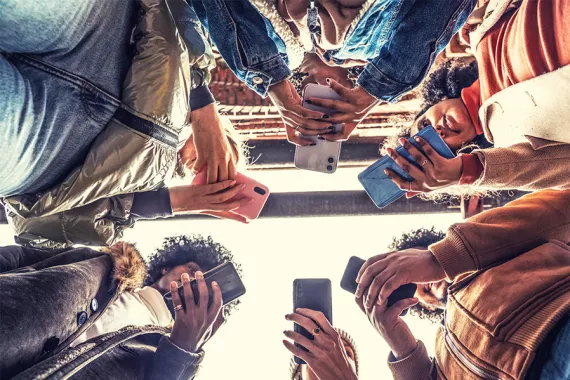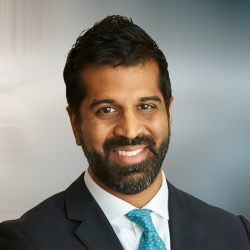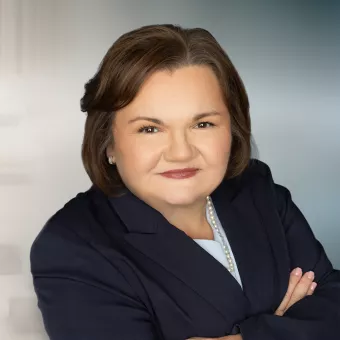
The Legal Team
- Andrew P. Arnold
- Esther E. Berezofsky
- Ebony Williams Bobbitt
- Riley Breakell
- Abigail Burman
- Jessica L. Carroll
- Grace P. Chandler
- Jessica C. Colombo
- Sara O. Couch
- Nelson L. Drake
- Jade A. Haileselassie
- Marlon E. Kimpson
- Annie E. Kouba
- Tope O. Leyimu
- Paul T. Lyons
- Kate E. Menard
- Donald A. Migliori
- Lance Oliver
- Jonathan D. Orent
- Joseph F. Rice
- Tammy Cauley Rivers
Case Overview
With potentially millions of Americans suffering from it, social media addiction or problematic use has become a hot-button topic for many researchers, internet users, parents and lawmakers. Excessive social media use has been associated with higher rates of depression, anxiety and suicidal thoughts. Review the latest social media addiction statistics below and read on to find out how to get help if you’ve been negatively impacted by social media.
Key takeaways about social media addiction statistics
- Social media addiction and/or problematic use affects millions of U.S. adults and young people.
- The most used social media apps among American adults are YouTube and Facebook. Meanwhile, the most used social media apps among “tweens” (children ages 8 – 12) and teens are Snapchat and Instagram.
- Negative effects of social media addiction include depression, disrupted sleep and body-image issues.
What is social media addiction?
Social media addiction has two important factors: compulsion and overuse. Researchers at Baylor University define social media addiction as “the excessive use and habitual monitoring of social media manifested in compulsive usage that comes at the expense of other activities.”
Addiction to internet sites is not a new problem either. In 1998, a study called Internet addiction: The emergence of a new clinical disorder found similarities between internet addiction and gambling addiction.
Today, the “internet addiction” of the 1990s has found a new outlet: social media platforms. Read on to find out about the statistics for social media addiction.
What is social media addiction?
Social media use statistics
The most popular social media platforms among U.S. adults are YouTube, Meta's platforms (Facebook, Instagram), Pinterest and TikTok. A recent Pew Research Center data fact sheet shows the percentage of American adults who use the following major social media platforms:
- Youtube: 85%
- Facebook: 70%
- Instagram: 50%
- Pinterest: 36%
- TikTok: 33%
Pew also reports large percentages of adult Americans using those top social media apps on a daily basis. For people ages 18 – 29, the three most popular social media platforms are YouTube, Instagram and Facebook.
Social media use among younger age groups may be even higher. For example, one-third of teenagers say they use social media platforms (YouTube, TikTok, Instagram, Snapchat and/or Facebook) “almost constantly.”
Multiple hours of social media usage each day may stray into the territory of problematic use or addiction if the use is compulsive and has a harmful effect on other areas of a person’s life.
Learn more about the dangers of social media for teens.
Social media use among children
A Surgeon General’s warning in 2023 also reported high-use numbers among children who are below the required minimum age (13 years old) for using most social networking platforms. Recently appointed Federal Trade Commission (FTC) chairman Andrew Ferguson has expressed concerns over how children and teens should be supervised when using social media apps. “Congress should pass a law that would require online service providers to give parents more control over children’s online privacy,” Ferguson said.
Since social media platforms aren’t strictly enforcing age restrictions to use their app, children under the age of 13 can often find ways to access these platforms.
Social media use statistics
How many people are addicted to social media?
A researcher from California State University has estimated that around 10% of Americans may end up with a social media addiction. That means more than 30 million people in the U.S. may be experiencing social media addiction, or they’re teetering on it.
Additional studies are needed to attach a firm percentage to the number of Americans susceptible to social media addiction. However, the emergence of approximate figures like the one above is worrisome.
What demographics are addicted to social media?
Certain demographics are more likely than others to be addicted to social media. Two major groups showing a higher likelihood of social media addiction or problematic use are women and young people.
In one study, 53% of young adults admit to feeling like they can’t control how much they use social media. While 30% of girls and women say they pay too much attention to the various stats and metrics used on social media (likes, comments, followers, etc.), only 20% of men and boys claim they do the same.
How many people are addicted to social media?
Statistics on the effects of social media
Data from leading research institutions has found high rates of cyberbullying, negative feelings and even suicidal thoughts in connection with social media usage. For example, in a report by Common Sense Media, 43% of young adults said social media has had a negative impact on their body image.
This same report also examined how different types of social media content impact different demographics of users. Some important callouts from this data include:
- 45% of users ages 14 – 22 said they see so much bad news on social media platforms that they feel stressed and anxious because of it.
- 48% of users ages 14 – 22 said they feel like other people’s lives are better than theirs when they spend time on social media.
- 52% of social media users said they feel pressured to show the best version of themselves on their social media accounts.
These are just some of the many effects of social media use on users.
Statistics on the effects of social media
The negative effects of social media addiction
Studies have identified several mental health issues linked directly to excessive social media use or addiction. These include but aren’t limited to:
- Body image issues (including eating disorders)
- Depression
- Disrupted sleep (delayed bedtimes and rise times)
- Fear of missing out (also called FOMO)
- Low self-esteem
- Reduced attention span
- Suicidal thoughts and attempts
- Higher levels of stress and anxiety
While these negative effects have the potential to impact both adults and younger people, surveyed teens have reported a decline in their mental health from using social media websites or apps.
The negative effects of social media addiction
Who can file a social media harm lawsuit? Parents or guardians can file a lawsuit against social media companies on behalf of their minor children who suffered mental health harms such as suicidal ideation, eating disorders and depression requiring hospitalization. Young adults can also file a lawsuit if they were minors when their trauma was diagnosed or treated.
Getting help for social media addiction
Help is available for people addicted to social media. If you’re in crisis or a loved one is in crisis, the following resources could prove useful:
- You can reach the National Suicide Prevention Lifeline at 988. This free and confidential call will connect you with a trained staff member. You can also visit SuicidePreventionLifeline.org.
- You can contact the National Eating Disorder Association (NEDA) toll-free number at 1-800-931-2237. The association’s website, NationalEatingDisorders.org, can also direct you to resources.
- The Mental Health America website offers information on therapy and treatment for addiction. The site can help you find the right provider for your specific needs.
People addicted to social media may also be eligible to file a lawsuit seeking compensation for their social media addiction.
Getting help for social media addiction
Frequently asked questions about social media addiction stats
What percentage of the population is addicted to social media?
Researchers estimate that around 10% of the U.S. population may be at risk for developing a social media addiction, if they don’t have it already. This type of addiction is generally defined as feeling a compulsive urge to constantly use and monitor social media.
How harmful is social media addiction?
Research suggests that social media addiction or problematic use can have negative mental and physical effects on consumers of social media. These effects may include body image issues, depression, unhealthy sleep habits, and higher levels of stress and anxiety.
What are the negative statistics about social media addiction?
Negative statistics of social media addiction or problematic use include the fact that 53% of young adults admit to feeling like they can’t control how much they use social media. Also, 45% of users in the age range of 14 – 22 say that reading bad news on social media makes them feel stressed and anxious.
What age group is negatively impacted the most by excessive social media use?
Research suggests that young adults, teens and pre-teens are the groups most negatively impacted by excessive social media use. This is especially concerning since children under age 13 can often find ways to access social media despite not technically being old enough to use it.
Frequently asked questions about social media addiction stats
Our social media harm experience
Our attorneys at Motley Rice have spent decades fighting for people and families that have been harmed by large corporations, including technology and media companies. We have filed lawsuits on behalf of people addicted to Instagram and other social media apps.
If you need help filing a lawsuit for social media addiction or problematic use, our law firm can help. We have experience with individual social media lawsuits and multidistrict litigation. Your well-being is important to our team.
Read more on how we’ve helped those who’ve suffered social media harm.
Our social media harm experience
- Sources
- APA PsycNet. Internet addiction: The emergence of a new clinical disorder.
- Baylor University. Social Media Addiction & Work-Life Balance.
- Common Sense Media. A Double-Edged Sword: How Diverse Communities of Young People Think About the Multifaceted Relationship Between Social Media and Mental Health.
- Pew Research Center. Social Media Fact Sheet.
- Pew Research Center. Teens, Social Media and Technology 2024.
- Reuters. How Trump's new FTC chair views AI, Big Tech.
- U.S. Department of Health and Human Services. Social Media and Youth Mental Health.
- United States Census Bureau. Population and Housing Unit Estimates.
Start Your Motley Rice Consultation in Simple Steps
Submit Information
Call us or fill out our online form with the details of your potential case.
Case Review
Our team reviews your information to assess your potential case.
Case Consultation
Talk with us about next steps.


